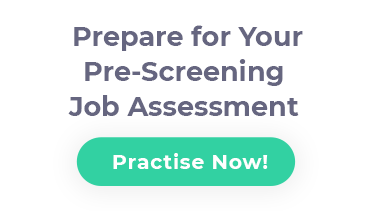Think Ahead Graduate Scheme Online Preparation – 2025

What Is Think Ahead?
Think Ahead is a graduate scheme in the UK that provides a route to a career in social work for new graduates and those seeking a career change. The organisation recruits, trains, and promotes those interested in social work because they believe a thriving mental health workforce is necessary for everyone to live the life they want and deserve.
This full-time programme usually begins in July and lasts a total of 26 months. Each year, 160 spots are available, and those who complete the programme will finish with a postgraduate diploma and a master’s degree in social work, both awarded by Middlesex University and entirely funded by Think Ahead.
Since this programme targets people entering the social work career, social work qualifications aren’t required. However, you must have at least a 2:1 degree in another subject. Think Ahead also looks for candidates who have the following attributes:
- Adaptability
- Communication
- Leadership
- Motivation
- Problem-solving
- Relationship-building
- Self-awareness
Because these traits indicate success in the Think Ahead programme, you’ll want to showcase them throughout the recruitment process to show the hiring team you are an excellent fit for the programme.
Register Interest
After confirming your eligibility for the programme, the next step will be to register your interest with Think Ahead. Think Ahead’s process is a bit different from other recruitment processes in that you have to show you are interested and complete an exam before you can officially apply. This form will ask for personal details and your educational history to ensure you meet the academic requirements.
These forms typically open in Autumn, so be sure to check their website and keep an eye on when registration opens.
Think Ahead Situational Judgment Test
After submitting your interest form, you must complete a situational judgment test (SJT). This pscyhometric exam assesses your behaviour in certain situations so Think Ahead can see if you would be a good fit for the programme.
The test will present several simulated workplace scenarios that are representative of what you may encounter on a typical day as a social worker. You’ll then have several options for how to respond to the situation. You’ll need to select which choice would be most effective and, therefore, how you would most likely behave in the scenario.
Before taking this exam, it is essential to research the Think Ahead programme, the attributes they want each candidate to have, and the values that social workers should embody. Use this information to guide your responses on how you should act in each situation.
Online Application
Those who do well on the SJT and meet the eligibility requirements will be invited to apply to the programme. This will be a more detailed application form that includes any previous work experience or academic project work you’ve completed.
You’ll also get to upload a CV and cover letter during this stage. The CV should be up-to-date and tailored to the Think Ahead programme. Be sure to highlight areas where you showed the strengths and skills they are looking for. The cover letter should be concise and highlight relevant areas of interest to the hiring team that aren’t available on your CV. For example, what are your motivations behind applying for the Think Ahead program, and why do you want to have a career in social work?
Think Ahead Assessment Centre
Your application will undergo another round of screening, and those who are shortlisted will attend the Think Ahead assessment centre. This event features several activities to test your skills and observe your behaviour. The event will also include other applicants for the programme, so some of your exercises will be group-centred.
This event is a great way to meet the Think Ahead team and others who may be in the programme. However, remember that you are still being evaluated during these activities. Therefore, it is essential to be courteous with everyone you meet and interact with while showing your aptitude for the programme.
- Group Exercises – You will team up with other applicants for the group exercises. Here, you will have to work together to form a solution to an issue or problem. The purpose of this activity is to see how well you communicate and collaborate with others. While showing your leadership skills is vital in this exercise, you must also demonstrate that you can work successfully as part of a team.
- Roleplay – You will also complete a roleplay exercise as part of your assignments. This activity may be with a member of Think Ahead or another applicant. Here, you will act out a hypothetical situation based on what you may encounter in the programme.
The purpose of this activity is to see how well you respond to challenging situations and how well you work under pressure. You’ll want to treat this like a real issue you are facing and respond in the way that a real social worker would respond. This will show the hiring team that you can handle the stressors of the programme.
Think Ahead Interviews
You will also complete multiple interviews throughout the assessment centre. These may be one-on-one discussions with members of the Think Ahead team or a panel discussion with several interviewers at once. The purpose of these interviews is to learn more about your motivations for applying to the program, core values and attributes, and ability to succeed in the program.
Many of their questions will be behaviour-based. In these scenarios, you’ll want to formulate your responses using the STAR method: Situation, Tasks, Action, and Results.
Remember that you’ll also want to relate your responses to the characteristics that the Think Ahead team is looking for. Research their website and desired attributes ahead of time so you can tie those into your answers when relevant.
How to Prepare for the Think Graduate Scheme?
Think Ahead is looking for intelligent individuals with the desired attributes to join their programme. Only candidates who do well through the entire recruitment process will be invited to join the programme and kick-start their career in social work.
Doing well on the initial SJT is necessary to be considered. There are resources such as online practice tests that can help you prepare for this exam. These will give example questions to understand better the test format and how to approach the question. The practice tests will also provide detailed explanations as to why each answer choice is correct or incorrect. This will be valuable information that you can use to help you answer questions correctly on the actual exam.
You’ll also want to prepare for the interviews. These discussions are how the Think Ahead team learn more about you and decide if you will be a good cultural fit for the program. Research common interview questions beforehand to prepare some responses before the interview pressures you. It would be best to look at interviewing tips to help boost your confidence for the discussion.
Applicants who prepare for the recruitment process do better than those who do not. Be sure to give yourself the best chance possible of joining the programme by preparing for the process using whatever resources are available to you.

